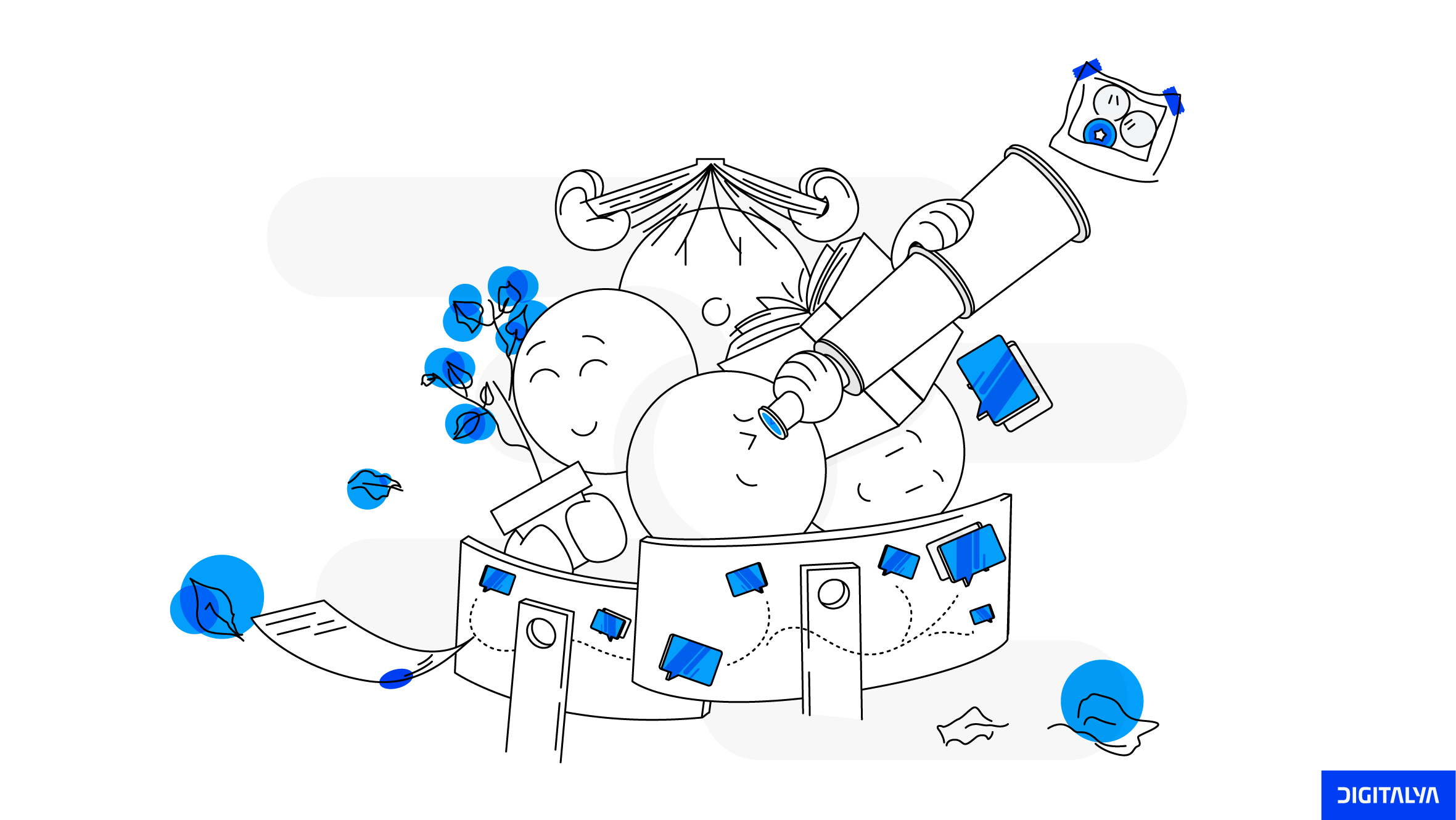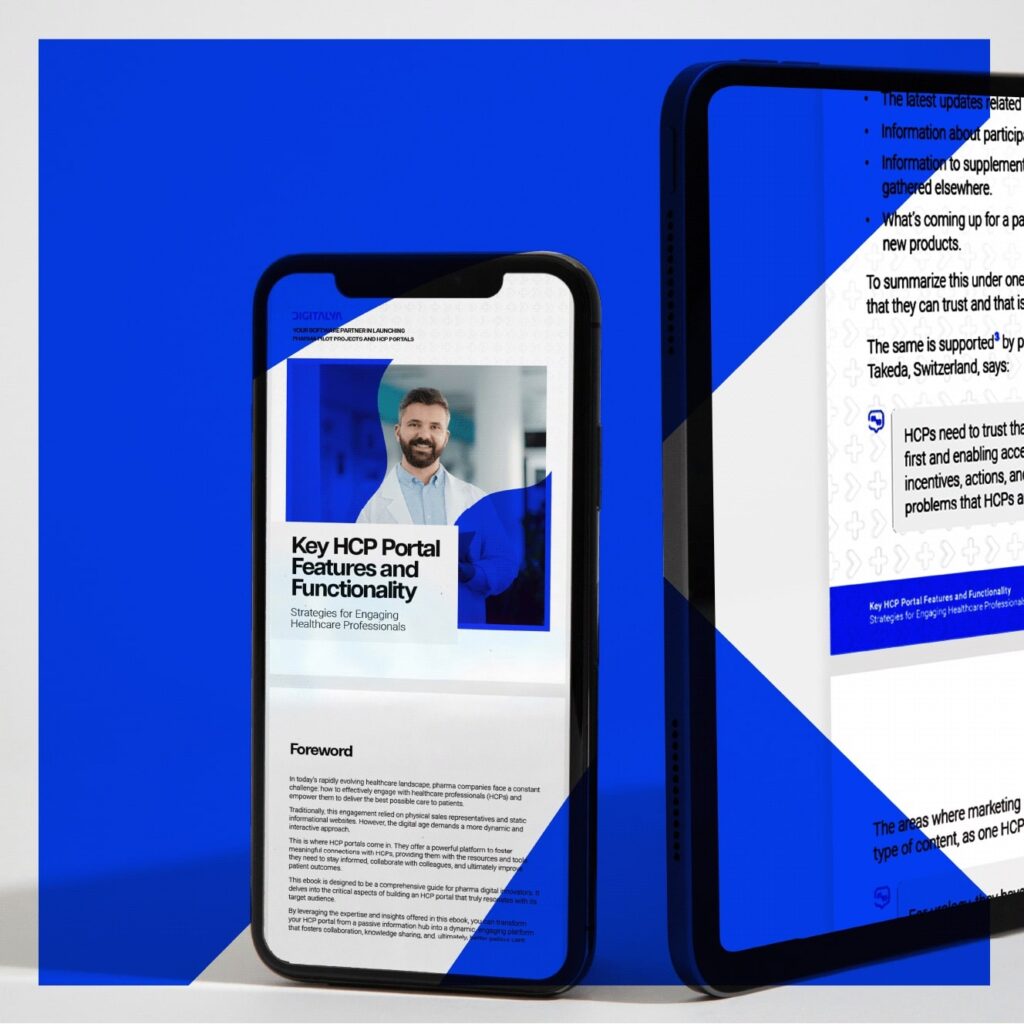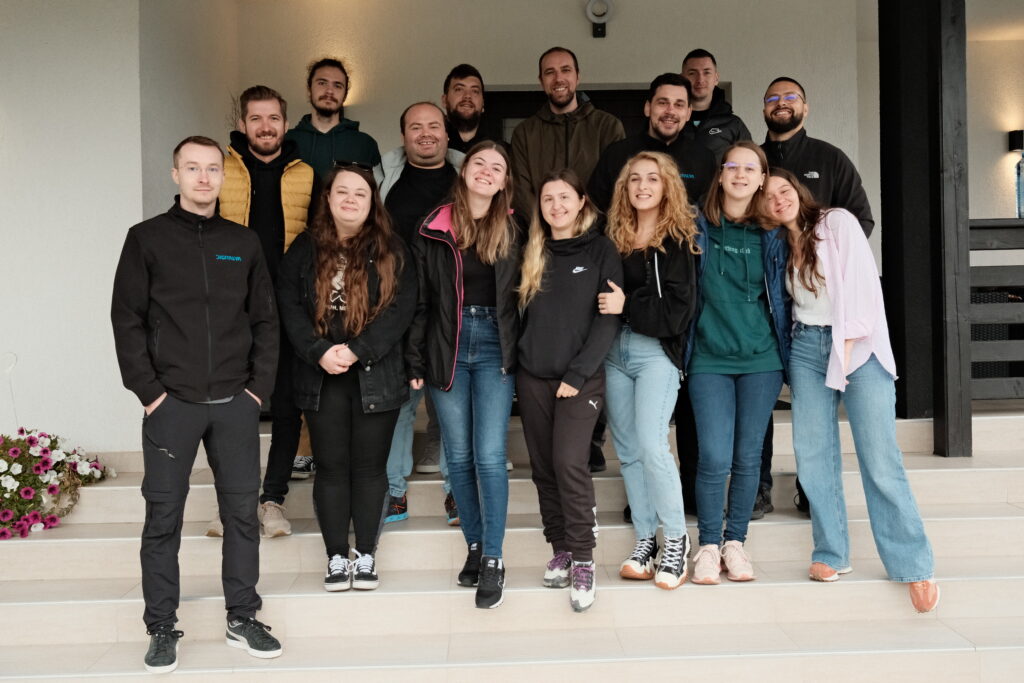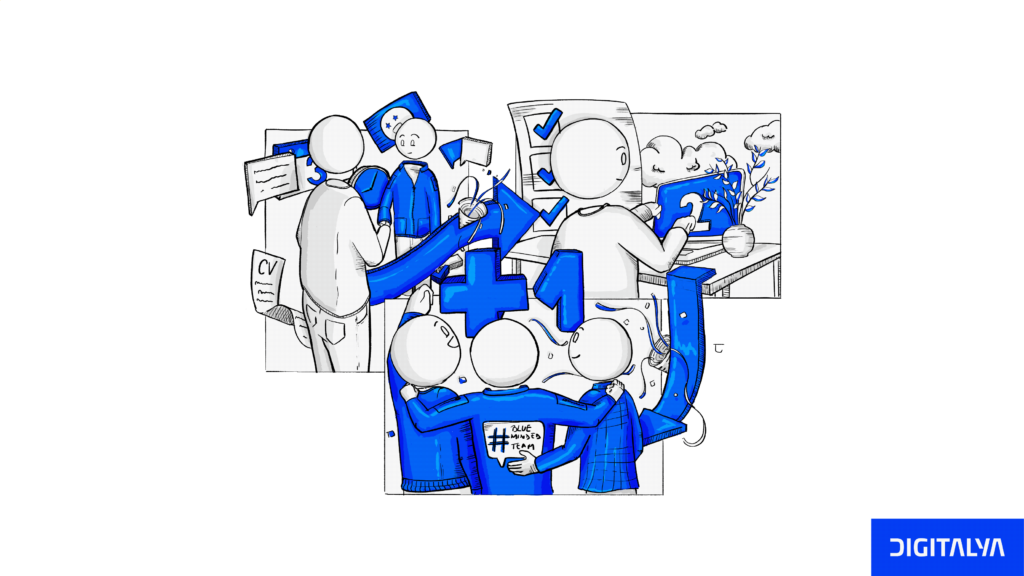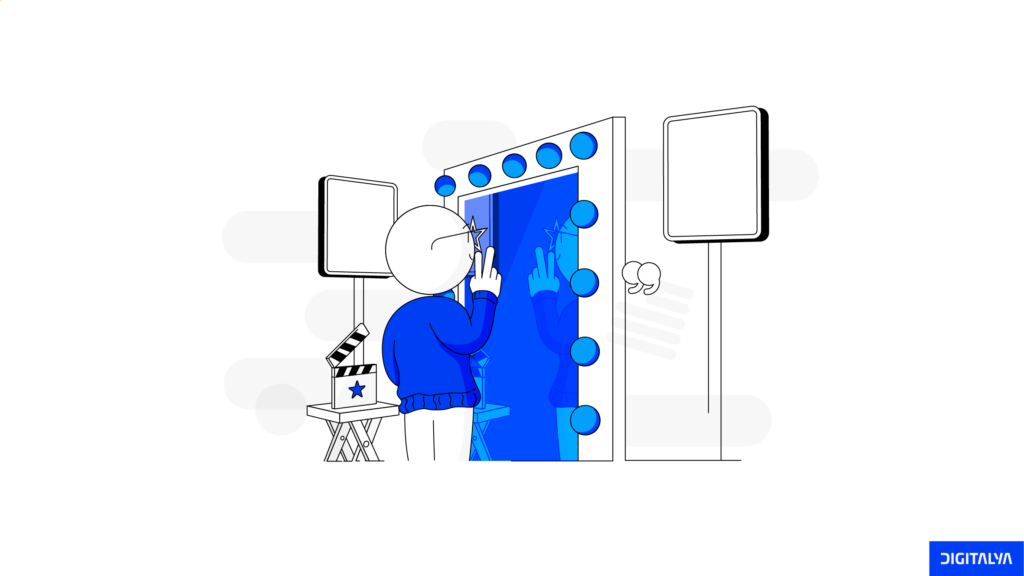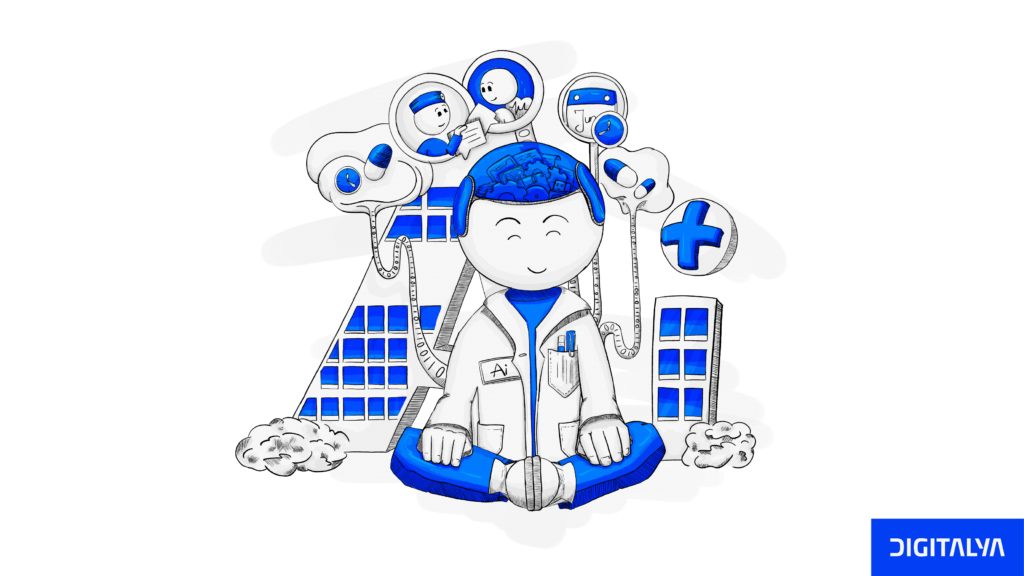We recently went through a process of defining our culture and team identity. It was such an interesting process that we decided to write an article about it.
Even though we already had a company culture and team identity, they’re much easier to promote, communicate, and understand when clearly defined.
So strap in for a flash tour of the Digitalya promise – our company culture and identity.
1. What does it mean to be blue-minded?
As a team, we are dedicated to digital and turning ideas into top-notch software solutions. But what makes us different from other developer teams?
Let’s take a look at our three uniques that are present in the way we do our work:
- Flexibility in time and place
- Care for one another
- Autonomy in how you do your work and what’s your next step
Flexibility is important to us, but it’s an ambiguous concept. For us, it means that you’re free to customize your working schedule according to how you feel most comfortable, as long as what needs doing will get done.
For example, if you have an appointment during your working hours and it doesn’t overlap with an important meeting, you’re free to take a break from your schedule and take care of yourself. And it’s your choice if you want to catch up on those hours in the evening or push the tasks for tomorrow – as long as you respect your deadlines.
This is tied to the idea of autonomy. Being able to shape how you work means that you are technically autonomous during the workday. Nobody will give you a list of tasks and tell you how to do them.
You’re free to shape your methods and even your next steps. Do you want to learn a new technology? Feeling like starting a new personal project? We’ll support you.
The third element of what makes Digitalya, well, Digitalya, is our genuine care for each other. This is the fundamental element of our team culture. Company activities are not something we have to attend – we actually like spending time together.
And, perhaps most importantly, we adhere to the same company values and actually use them in our daily activities:
- We help each other
Human connection, beyond projects or work, is vital to us. Each action comes from a place of care; we listen actively, are kind, and trust and help each other.
- Power to the team
We recognize that each member is vital in determining a project’s final outcome. Together, we’re powerful – there are no hierarchies, and mutual respect and collaboration are key.
- Always seek quality
Quality over quantity – we’re devoted to delivering high-quality results. Do your best consistently and enjoy having happy customers, users, and teammates.
- Tech is our playground
Exploring new tech trends comes naturally to us. We’re always eager to drive change and share our knowledge with others.
Our values play an important role in our recruitment and evaluation processes.
2. What does ‘Shape how you work’ mean?
Shape how you work is our employee value proposition. What does that mean?
An employee value proposition (EVP) is the unique value you offer as an employer to your employees in return for their skills, experience, and commitment. In short – a promise.
The long version of our EVP is Shape how you work, grow, and collaborate.
It encompasses our three uniques: flexibility, care, and autonomy. A Blue-minded team member is encouraged to shape their own schedule, collaborate with others, and grow to become a better version of themselves.
This is the core of the Digitalya experience.
3. How do we empower our blue-minded team to shape how they work?
Just saying that you have a set of values doesn’t actually mean anything. You – as a company, management team, or project manager, have to encourage your team members to put those values into practice – in a way that benefits both parties.
3.1. Autonomy and flexibility
We encourage our team to be autonomous. People should be able to customize their own approach to the work they do. This includes their schedule, way of doing their tasks, and, of course, being able to give suggestions and have a say in the workflow.
We support our team to be flexible. Sometimes, having a strict workflow that people have to follow is beneficial. But something unpredictable happens 8 out of 10 times in the real world. This is a great moment to let your team’s flexibility (and your own) shine through – learn to adapt and overcome any challenges you encounter.
Both autonomy and flexibility come with a need for accountability. We keep our promises – if I say I will do something, people expect me to do it. I must let everyone involved know if I can’t do what I promised. I do not need a babysitter.
3.2. Personal development and growth
When people are passionate about what they do, they aspire to improve. However, personal development and growth should also be considered, not just skill development.
We inspire our team to invest in themselves on a personal level. Improving communication and collaboration skills, active listening, and time management are all important for the well-being of your team. On this note, we offer a number of days dedicated to learning that anyone can benefit from.
3.3. Create a culture of trust and respect
Everything goes more smoothly in a safe environment, and the ability of our team members to trust and respect each other is key.
This also includes how feedback is given and received. The feedback you offer should come from a well-intentioned place. All suggestions should be actionable and explained so the other party can understand the benefits of your ideas.
Every six months, we have feedback sessions with everyone on the team. This feedback is gathered from other team members and evaluated through the values that we have. This way, people know how they’re doing, and it’s easy for them to find opportunities for improvement, to receive praise, and even financial benefits, depending on the case.
3.4 Foster collaboration and teamwork
Most things are better together. We have teams that write code together and do peer reviews. This fosters collaboration and encourages people to ask for help when needed.
The only way to succeed and overcome any hurdle is to work together and acknowledge that everyone has a crucial role in the final outcome.
Our marketing and sales departments work together on a common strategy and, on occasion, with our designer or developers when needed. Different people from different departments come together to organize events for everyone or even organize the office. Collaboration is second nature.
4. Why empower employees to shape how they work?
Empowered employees = successful companies.
Experts agree that employees with more control over how, when, and where they do their jobs will work harder and find their work more engaging. Empowering employees through greater autonomy has been directly linked to increased employee motivation.
An analysis published in Harvard Business Review states that when employees feel empowered at work, it is associated with stronger job performance, job satisfaction, and commitment to the organization.
4.1 Increased engagement and productivity
Empowered employees feel more valued and respected. When people are given the autonomy to make decisions and take ownership of their work, they feel that their managers and the organization as a whole trust and respect them.
Also, they are more likely to go the extra mile. When employees feel they have a stake in the company’s success, they are more likely to be motivated to put in their best effort and go the extra mile.
When employees are given the opportunity to contribute to the company’s goals and have a say in its direction, they develop a stronger sense of purpose. They feel their work is meaningful and contributes to the organization’s overall success, which increases their engagement.
4.2. Improved customer satisfaction
Empowering your employees raises the chance of them making decisions that are in the customer’s best interest. When employees can make choices without escalating to a manager, they can resolve customer issues more quickly and efficiently. They also have the flexibility to personalize customer experience and go the extra mile to meet the needs of each individual customer.
4.3. Reduced turnover
Empowerment can lead to increased job satisfaction and a sense of belonging. As a result, employees are less likely to seek other job opportunities, reducing turnover and recruitment and training costs.
4.4. Increased innovation
When employees are not micromanaged and are given the freedom to experiment and try new things, they are more likely to come up with new ideas and solutions to problems and to be more creative and innovative.
So, what is Digitalya’s promise to the blue-minded team? Empowerment. Prioritizing employees creates a relationship that benefits the organization and the team.
